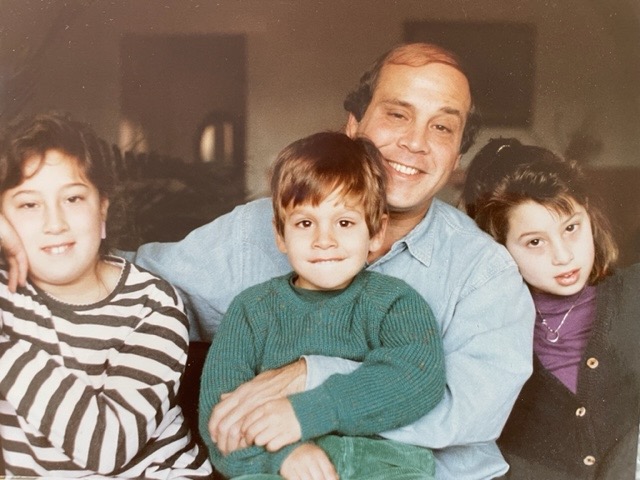
(Eighteen killed, 13 seriously injured. News report.)
When I saw the news and latest updates from Maine this morning, two thoughts came to mind. The first was a word game, where my restless mind took the number of fatalities, 18, and played with it. Thinking about the Bobby Darin song, only transposing its 18 yellow roses into 18 vessels of life, cut short by evil machinations from our political system. Wondering about all the ways there would be 18 fewer things in life, as a result of one sick killer’s murderous acts.
My second thought was this…In the Jewish tradition, the number 18 is called Chai. Chai also means Life. That makes 18 a lucky number. To give $18 is to give two gifts: one the money, two the luck that goes with it.
Unfortunately, for me, after yesterday’s mass shootings in Maine, the number 18, in my heart, has shifted from signifying Life, to certifying Death.
And certifying so much more.
Certifying 18 lifeless bodies, many unrecognizable from the bullets that thoughtlessly tore them apart…
Certifying 18 empty places at multitudes of family dinners, birthday parties, weddings, Christenings, confirmations, town meetings and Saturday morning soccer games…
Certifying 18 empty seats at lifetimes of tennis matches, baseball games, family car trips, Cub Scout Pinewood Derbies, church services, Sunday family dinners, Christmas eve services and Friday night poker games. Living as we do, on an earthly plain, there are also 18 lifetimes of sumptuous meals, inner cravings, fits of laughter, sexual stimulation, minor human foibles, all just waiting to be missed.
The human condition times 18.
Yesterday, you could almost hear the cries of pain as they hammered and echoed across the land. Almost hear the sighs, involuntary and hushed, of the millions who were not touched personally by the tragedy, yet who felt strongly its terrors and anxieties.
Not living in Maine, we were safe from this latest act of domestic terrorism, America’s 556th mass shooting this year! A uniquely American statistic. And an ugly outcome from the Republican Party’s intransigence over gun control, their catering to the gun lobby’s agenda as they struggle to remain relevant and influential in today’s politics, even with their diminishing numbers.
If you’re keeping score, that’s 18 for the NRA and its political shield, the Republican Party. And zero for the rest of us. Which means, of course, that, in the curious way my mind works, zero now also equals 18.
I know. 18 is just a number, and numbers don’t inspire empathy or compassion. But not true for number 18. Not today. Today, that number equal’s 18 American citizens who will never get to run for office, or ever vote again, for that matter. 18 who will pay no income taxes, or get to send children to school. 18 who will never buy or read another novel, never get to revisit Mark Twain as an adult reader. That’s also 18 citizens who will never go to their high school proms, never learn to drive their father’s car, and, sadly, never fall in love for a first or second time. 18 who will never enjoy rounds of golf, joining the Rotary Club, or playing in a men’s basketball league, Tuesday evenings at the JCC.
18 yellow roses were sent on their way yesterday. Pulled rudely from their lives by a man so sick he should have never been allowed near a gun. 18 yellow roses, their rose-like beauty shredded to bloody scraps by the bursts of the AK-15. The sad truth is, we will remember the number 18 far longer than the lives that number signifies: the 18 slants on life, the 18 relationships with God, the 18 struggles for perfection, the 18 realizations of life’s futility, the 18 searches for the Truth, whatever form that might have taken.
Remember the number 18 next time you vote, and let it remind you not to vote for anyone who lists themselves as Republican.
Do it for the 18.
Do it for all of us.




